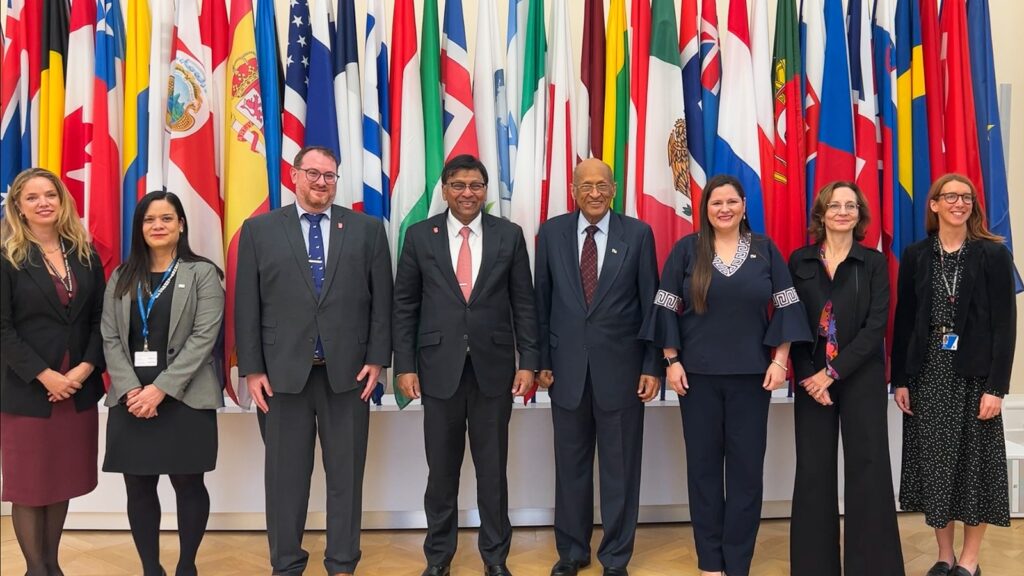
- The work carried out in this inherited situation began in June 2019, when Panama had 15 actions identified as unfulfilled.
- FATF determined that the Republic of Panama has strengthened its system for the prevention of money laundering and against the financing of terrorism.
In a momentous decision with positive implications for the Panamanian economy, the Financial Action Task Force (FATF), excludes Panama from its gray list, after a process initiated since June 2019, in which important measures have been implemented to combat money laundering and terrorist financing.
This announcement comes during the FATF plenary meeting, held in Paris, France, where it was determined that the Republic of Panama has strengthened its system for the prevention of money laundering and against the financing of terrorism and implemented substantial standards and actions that have allowed the country to take an important step towards international transparency. The decision was supported by countries in the Latin American region, Asia and the European Union, as well as international organizations and the Latin American Financial Action Task Force (GAFILAT), of which Panama has been a member since 2010.
The work carried out in this inherited situation began in June 2019, when Panama had 15 actions identified as unfulfilled. After several technical meetings with the FATF group of expert evaluators, in June 2023, the actions were considered as largely completed.
Actions developed
Compliance with these actions included the updating of Chapter V of the National Risk Assessment on Terrorist Financing (TF), which has been approved and disseminated, covering the country’s relevant threats, vulnerabilities and TF mitigation measures; increased staffing of both the Financial Analysis Unit (UAF) and the Public Prosecutor’s Office in charge of TF analysis and investigations; development of guidelines on identified risks and possible mitigators for the non-financial sector; increased development of risk-based supervisions, which include TF analysis as part of the supervisions; adoption of a risk-based supervision plan for regulated non-financial entities (NFS), demonstrating significant progress in its implementation; completion and implementation of the supervision manual of the Superintendency of Non-Financial Entities (SSNF), among other aspects.
In addition, the AML/CFT (Prevention of Money Laundering and Financing of Terrorism) regulation was modified, increasing the sanctions for non-compliance up to 5 million balboas (Law 254 of 2021), contemplating the proportionality and dissuasiveness factors in the application of sanctions, as well as elements related to the seriousness of the offense, the degree of recidivism, the magnitude of the damage and the size of the subject; imposition of sanctions by the Superintendence of Banks of Panama (SBP), Superintendence of Insurance and Reinsurance (SSR), Superintendence of the Securities Market (SMV) and SSNF, given non-compliance in AML/CFT prevention matters.
Also, the Single Registry of Beneficial Owners (RUBF) was adopted, by means of Law 129 of 2020, which currently has an advance of 82% of information population and verification of the corresponding information is also being implemented. Likewise, the country issued the Final Beneficiary Guide, in order to strengthen the knowledge and awareness of obligated parties to improve the identification and transparency of final beneficiaries; and the lawyers’ agreement was reinforced, strengthening the supervision capacity of the SSNF.
In addition, Technical Assistance by the FAU increased significantly, and it was demonstrated that the country can provide information through international requests related to tax crimes involving amounts of less than 300 thousand balboas, showing that the threshold for domestic tax evasion does not negatively impact the Republic of Panama’s ability to cooperate.
On the other hand, the “Guide for the Investigation of Tax Crime in Panama” was adopted; the number of money laundering investigations related to predicate offenses other than drug trafficking was increased, including foreign predicate offenses; and a Guide for the Investigation of Tax Fraud was developed.
In conjunction with these actions, the following AML/CFT laws were enacted since 2019: 70, 116 and 123 of 2019; 124 and 129 of 2020; and 254 of 2021. In addition, the issuance and publication of the Executive Decrees enacted from 2019 to date: 905 of 2019, 721 of 2020 and 13,15 and 35 of 2022.
Benefits obtained
Panama’s exclusion from the FATF gray list will have a positive impact on multiple aspects of the Panamanian economy and the international financial community:
- Improved international image: With the exclusion of Panama from the gray list, the country’s image is strengthened at the international level, as well as its commitment to transparency, not only nationally but also internationally, which will facilitate international economic and financial relations.
- Increased foreign investment and job creation: with the recognition of the country’s progress in preventing money laundering and combating the financing of terrorism, foreign investment is expected to increase, which will boost tourism, trade, and the creation of new and more jobs and opportunities in the country.
- More accessible lines of credit: The reduction and expansion of credit lines, which will benefit individuals and companies seeking financing.
- Correspondent banking and improved international relations: It will lead to a significant improvement in relations between Panama’s local banks and their international correspondents. The basic links necessary for financial operations will be strengthened.
- Reduced pressure on the financial system: With the elimination of the pressure associated with special reviews, Panama’s financial system can operate more effectively and with greater confidence.
- Benefits for the insurance and securities industry: The removal of Panama from the gray list will attract the world’s leading reinsurers, which will be able to establish themselves in Panama and serve the Latin American market.
Panama’s removal from the FATF gray list represents a crucial milestone in the country’s economic development.
Panama has not only demonstrated its commitment to the fight against money laundering and the financing of terrorism, but it also continues to develop timely and effective actions that allow it to maintain an equitable and competitive position in the international financial community. This achievement is the result of the joint work between the National Coordination of Panama in the prevention of money laundering and financing of terrorism, together with the Panamanian authorities, the private sector and the international community.
Panama’s Minister of Economy and Finance, Héctor Alexander, the director of International Financial and Tax Strategy of the MEF, Panama’s AML/CFT national coordinator and technical secretary of the National Commission against Money Laundering, Terrorist Financing and Financing the Proliferation of Weapons of Mass Destruction (CNBC), Isabel Vecchio Arófulo represented the country before the FATF, along with representatives of other Panamanian institutions that are part of the CNBC, who participated in this historic plenary meeting.

